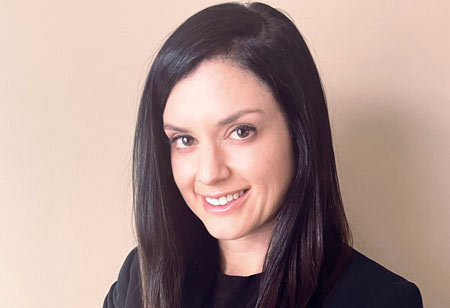Thank you for Subscribing to Healthcare Business Review Weekly Brief

Transforming Healthcare by Implementing Unified EHR
Healthcare Business Review
Beth J. Kushner is an accomplished healthcare professional currently serving as the Chief Medical Information Officer at St. Joseph Health. As a visionary leader, she brings a wealth of knowledge and experience to her role. Kushner is also known for her ability to coordinate teams in implementing IT systems to provide greater functionality and clinical decision support, ultimately delivering the highest quality healthcare.
Could you describe your career journey so far and your key responsibilities at St. Joseph Health?
I work as the Chief Medical Information Officer, fulfilling a dual role as a practicing emergency physician and as the leader overseeing our enterprise-wide electronic health record (EHR) systems. In my capacity, I was responsible for transitioning St. Joseph Health from a best of breed varied electronic records to a unified EHR system. Alongside my team, we developed and implemented a cohesive Cerner Millennium platform, which went live in 2018. The experience gained from my background in medical informatics played a significant role in the successful completion of this endeavour.
Over the past five years, working with our EHR system has provided me with valuable insights into the importance of aligning technology to optimize healthcare workflows and revenue cycles. Consequently, I now prioritize projects aimed at expanding our ambulatory services and fostering connections with population health colleagues, ensuring high-quality and efficient patient care.
What is the role of EHR systems in providing high-quality patient care?
EHR systems play a vital role in delivering excellent patient care as they serve as a foundation and backbone, acting as a digital fingerprint for coordinating various interfaces. Regardless of the method or timing of patient interactions, EHR systems allow for seamless integration of all touch points.
I consider our EHR platform to be a robust foundation that enables the development of additional functionalities, making it a crucial starting point for optimizing healthcare processes and improving patient outcomes.
Are there any best practices you adopt for keeping the patient information safe?
I am deeply committed to maintaining patient confidentiality and fostering a strong doctor-patient relationship.
In addition, our organization has a dedicated and capable cybersecurity team that takes swift action in response to potential threats. While I am not directly involved in cybersecurity, I frequently collaborate with the team to effectively communicate concerns and issues.
By bridging the gap between IT and clinical staff, I facilitate the implementation of extensive precautionary measures to prevent breaches from occurring. This proactive approach ensures that both the IT and clinical teams are well-informed and prepared to protect patient information and maintain the highest level of security.
Is there a project initiative that you are working on, and what are some of the process elements that you have leveraged to make it successful?
I have had the privilege of leading the implementation of EHR systems at St. Joseph Health, which has presented both challenges and rewards. One of the significant challenges involves assessing the effectiveness of existing workflows and making necessary improvements. This process can be demanding, time-consuming, and disruptive. However, leveraging the capabilities of EHR systems has allowed us to enhance our efficiency, create a seamless patient experience, and generate greater revenue.
EHR systems play a vital role in delivering excellent patient care as they serve as a foundation and backbone, acting as a digital fingerprint for coordinating various interfaces
Recently, we have also been focusing on change management strategies that target waste reduction and provide a personalized approach to accommodate individuals at different stages. This ensures that our efforts are tailored to meet the unique needs of our staff and patients, fostering a culture of continuous improvement and adaptation.
In light of your experience, what will be your advice to the fellow peers in the industry?
It is crucial for us to maintain an open-minded approach and approach new technologies with great enthusiasm. We need to conduct thorough research on the new technology, workflows, and ideas and prepare a well-planned roadmap on how they can be implemented in the best way possible to yield visible results.









